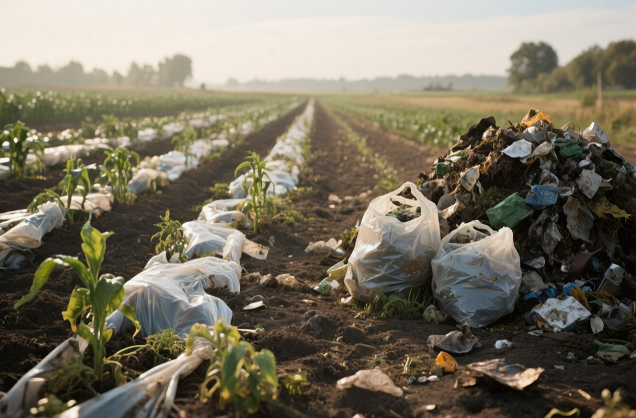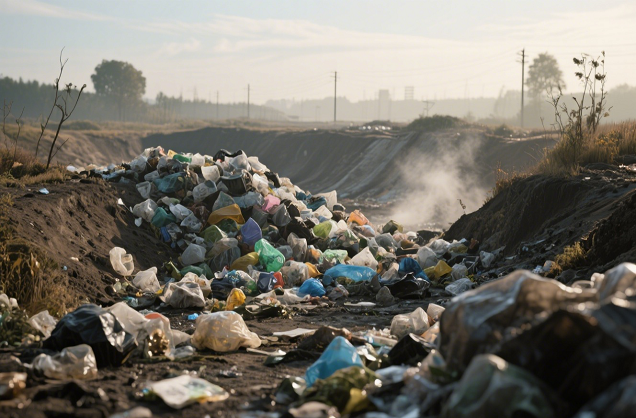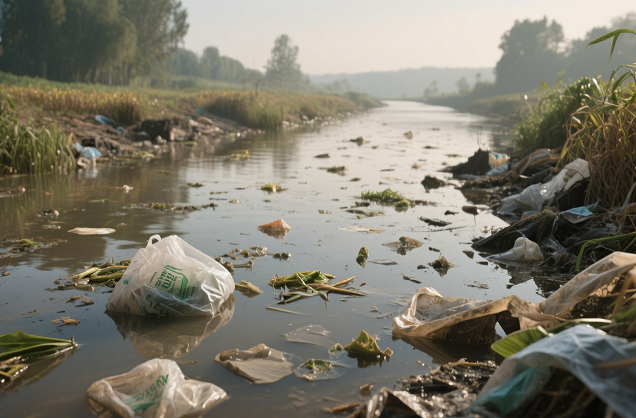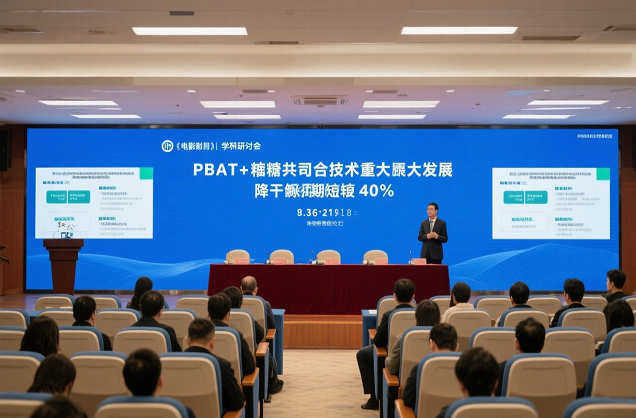Why compostable plastics don't decompose - 3 minutes to spot the ‘pseudo-degradable’ trap
The “eco-friendly plastic” you buy may be deceiving you
In recent years, compostable plastic has been promoted as the “ultimate solution” to white pollution. However, many consumers are finding that the “biodegradable” bags or packaging they purchase do not decompose in the composting environment for months, and even leave microplastics behind.
In 2024, the international environmental organization Break Free From Plastic released a report stating that more than 60% of “compostable plastics” on the market do not fully degrade within the promised time frame, and that some of these products are even more harmful than traditional plastics.

Part 1: Why Your Compostable Plastic Doesn't Break Down?
Reason 1: The material is not a real “compostable plastic”
✅ Real Compostable Plastic:
Composed of PLA (Polylactic Acid), PBAT, PHA, etc., degraded by industrial composting (high temperature + microorganisms) or home composting
Certified Standard: OK Compost INDUSTRIAL / HOME, ASTM D6400
❌ Pseudo-degradable plastics:
Oxo-degradable: contains PE+additives, only crumbles into micro-plastics (banned in the EU)
Partially starch-based plastics: a mixture of non-degradable components (e.g., PP), practically non-compostable
Typical examples:
A brand of “eco-friendly shopping bags” is labeled as A brand of “eco-friendly shopping bag” is labeled as “100% biodegradable”, but lab tests show that:
Contains 40% of traditional PE plastics
Only 15% decomposed in 18 months in composting environment
Reason 2: Degradation conditions are not met
Even if the material is acceptable, incorrect handling can lead to non-decomposition:
Degradation environment Temperature requirements Time requirements Frequently asked questions
Industrial composting 50-60°C 180 days 90% of municipalities do not have a facility
Household composting 20-30°C 6-12 months Moisture/carbon-to-nitrogen ratio imbalance
Natural environment Not applicable Hardly decomposes Disposed of by mistake into the sea/soil
Reality:
Only 35% of Europe's Reality: Only 35% of European cities have industrial composting plants
68% of “compostable plastics” in the US end up in incineration or landfills
Reason #3: False or ambiguous certifications
Some companies play with words:
Use of the word “degradable” instead of ‘compostable’ is not a good way of saying “compostable”. Degradable“ instead of ‘Compostable’
Falsifying certification marks (e.g., fake ”Green Leaf“ logo)
Concealing the small print ”Industrial Composting Only" statement

Part II: 3 Minutes to Recognize the Pseudo-degradation Trap
Step 1: Look for Certifications (30 seconds)
✅ Real Certifications (official numbers available on the website):
Industrial Composting: OK Compost INDUSTRIAL, ASTM D6400
Home Composting: OK Compost HOME, AS 5810
Others: BPI (USA), TÜV Austria (EU)
❌ High-risk labels:
“Biodegradable” (no specific criteria)
“Environmentally friendly material” (no certification)
"Oxo-biodegradable “ (Oxo-biodegradable)
Step 2: Check Ingredients (60 seconds)
Safe Ingredients: PLA, PBAT, PHA, Nano-cellulose
Hazardous Ingredients: PE, PP, PS (traditional plastics)
Ambiguous Ingredients: ”Bio-based" (may mix with non (may mix with non-degradable materials)
Quick test:
Light a small piece of material with a lighter:
True PLA/PBAT: burns slowly, sweet smell, brittle ashes
Contains PE/PP: burns quickly, black smoke, drips plastic liquid
Step 3: Ask about disposal (30 seconds)
Confirm with the merchant:
“Does this product have a complementary composting facility in my city?”
“If composting is not possible, is there a recycling program?”

Part III: Recommendations for Truly Compostable Plastics (measured in 2024)
1. Home Composting Applicable
BioBag 3 Gallon (PLA+PBAT):
OK Compost HOME certified
Measured home composting fully decomposed in 4 months
EcoSafe Compostable Bags (cornstarch-based):
Tear-resistant, suitable for food waste collection
2. Industrial Composting Applicable
TIPA Flexible Packaging (PLA composite film):
Used for snack packaging, 6 weeks degradation
NatureWorks Ingeo (PLA resin):
Heat-resistant cup lidding material, Starbucks supplier

Part IV: Industry change and consumer action
Policy upgrades
EU: from 2025, all “compostable” products must be labeled with the method of treatment
China: new GB/T 41010-2024 standard to crack down on false degradation promotion
Reporting of false products: via BPI website or 12315 platform
Supporting true eco-brands: eg. Ecovative (mycelium packaging)
Promote local composting: propose to municipalities to build treatment facilities
 Significant progress in PBAT/s
Significant progress in PBAT/s
 PLA/PBAT composite film degrad
PLA/PBAT composite film degrad
 A New Choice for Takeaway Pack
A New Choice for Takeaway Pack
 Significant progress in PBAT+s
Significant progress in PBAT+s
CONTACT
Add: Room 4006, No.1 Helong Yiheng Road, Baiyun District, Guangzhou City
Tel: +8613450255948
Wechat : +86-13450255948
Fax: +86-13450255948
E-mail: 13450255948@163.com








